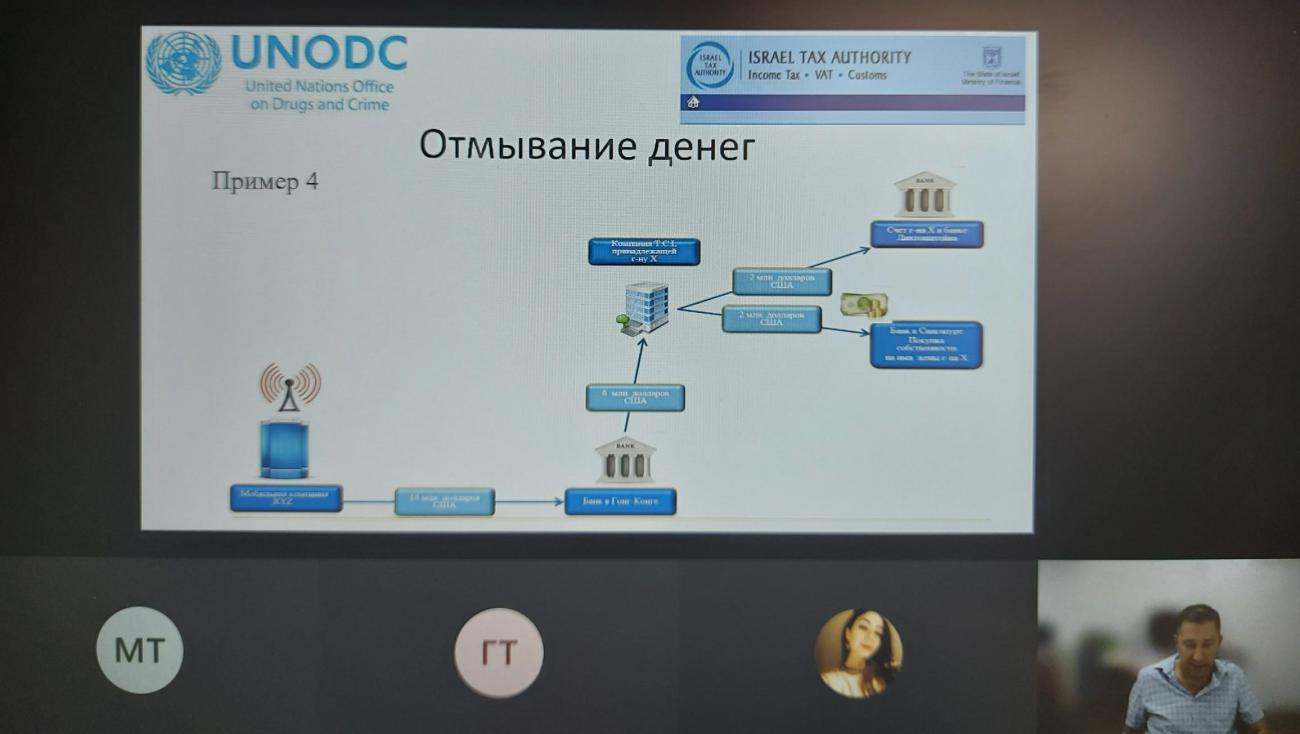UNODC trains Turkmen law enforcement officers on cross-border transportation of cash and identification of cash couriers

UNODC continues to strengthen the capacities of the Turkmen law enforcement officers to combat cross-border crime and ensure effective border control.
On 13-17 September, UNODC conducted an online training course on cross-border transportation of cash and identification of cash couriers in improving the controls and techniques to combat the smuggling of money across Turkmen borders. The event brought together mid- and senior-level officers from the Ministry of Internal Affairs, State Customs Service and State Border Service of Turkmenistan.
“By preventing the cross-border movement of illicit funds, money laundering and the financing of terrorism, your work contributes to the global efforts safeguarding the welfare and livelihoods of many people throughout the world. Your work is invaluable,” said H.E. Ms. Beth-Eden Kite, Ambassador Designate of Israel to Turkmenistan, speaking to the training participants.
“Considering that law enforcement officers at the borders are at the forefront of efforts to counter organized crime and it is crucial for them to stay updated on current situation and developments, we continued to conduct online-trainings to provide the officers with continuous learning opportunities throughout the COVID-19 pandemic,” said Mr. Yusuf Kurbonov, UNODC International Programme Coordinator, in his opening remarks.
During the training, the participants learned about money laundering and financing terrorism, identification of trends in illegal transportation of cash, routes and ways of concealment, risk analysis, profiling and search of passengers, cargo, baggage and vehicles, working with digital media (extracting and processing data from computers and mobile phones), methods of effective interrogation, Darknet, among others.
The training was delivered by Mr. Sergey Guslitzer, the tax expert from Israel who has extensive experience in managing multidisciplinary intelligence and investigation projects on combating illegal capital and money laundering. Oleg Timerman, Digital Forensics Expert from Israel Tax Authority delivered some sessions of the training.
The training course was conducted within the framework of Cross-Border Cooperation Component of Sub-programme 1 “Countering transnational organized crime, illicit drug trafficking and preventing terrorism” of the UNODC Programme for Central Asia designed to counter the trafficking of Afghan opiates through the northern route by establishing Border Liaison Offices (BLOs) at the key border crossing points (BCPs) in the Republic of Kazakhstan, the Kyrgyz Republic, the Republic of Tajikistan, Turkmenistan and the Republic of Uzbekistan. It is the first project to establish BLOs in Central Asia, and its stakeholders are the Ministries of Internal Affairs, Border Troops, Customs and Drug Control Agencies of each country.
The establishment of BLOs in Central Asia builds a strong foundation for further effective interagency and cross-border cooperation. To date, 19 BLOs have been established on the Tajik-Afghan, Uzbek-Afghan, Tajik-Uzbek, Kyrgyz-Tajik, Kyrgyz-Uzbek, Kyrgyz-Kazakh and Kazakh-Uzbek borders. Turkmenistan joined the Cross-Border Cooperation Component in 2020.
Embassy of Israel in Turkmenistan provided an in-kind contribution to the training by providing expertise.
The implementation of a national initiative under the component in Turkmenistan is funded by the U.S. Department of State’s Bureau of International Narcotics and Law Enforcement Affairs (INL).

